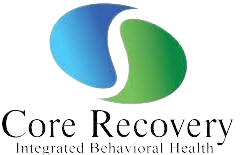In a world where seeking help for substance abuse or mental health issues can often feel daunting, the availability of outpatient treatment programs stands as a beacon of hope. With flexibility and accessibility at the forefront, outpatient programs offer a myriad of benefits to individuals navigating the journey of recovery. In this article, we delve into the advantages of choosing an outpatient treatment program, exploring how it empowers individuals to reclaim their lives while maintaining their daily routines and responsibilities. From flexible scheduling to a supportive community, outpatient programs provide a holistic approach to healing, addressing not only the symptoms but also the underlying causes of addiction and mental health challenges. Whether you’re balancing work, family, or other commitments, an outpatient treatment program offers the support and resources needed to embark on a transformative path towards lasting recovery. Join us as we uncover the invaluable benefits awaiting those who choose the outpatient route.
The Importance of Community in Outpatient Treatment Programs
In the journey of addiction recovery, one of the most vital elements is the support system that surrounds an individual. Outpatient treatment programs, designed to provide therapy and support while allowing individuals to maintain their daily lives, place a significant emphasis on community. In this article, we delve into why this aspect is so crucial and how it contributes to successful recovery.
Creating a Supportive Environment
Outpatient treatment programs function within the community, whether it’s a local clinic, a counseling center, or a virtual support group. Being part of this environment immediately connects individuals with others who understand their struggles and challenges. The shared experiences foster empathy and understanding, creating a safe space for individuals to open up about their journey without fear of judgment.
Breaking the Isolation
Addiction often thrives in isolation. Outpatient programs offer a lifeline for those battling addiction by breaking this cycle of isolation. Group therapy sessions, peer support meetings, and community events provide opportunities for individuals to connect with others who are on similar paths. These interactions remind participants that they are not alone in their struggles and that there are people who genuinely care about their well-being.
Accountability and Encouragement
In outpatient treatment, individuals form bonds with their peers who serve as sources of accountability and encouragement. Through regular meetings and check-ins, participants hold each other accountable for their progress and goals. Knowing that others are rooting for them can be a powerful motivator for individuals to stay committed to their recovery journey, even during challenging times.
Learning from Each Other
Within the community of an outpatient program, there’s a wealth of knowledge and experience to draw from. Participants come from diverse backgrounds and have varied experiences with addiction and recovery. Sharing stories, insights, and coping strategies with one another can provide valuable perspectives and inspiration for overcoming obstacles. Learning from others who have walked similar paths can instill hope and confidence in one’s ability to overcome addiction.
Long-Term Support
Recovery is not a destination but a lifelong journey, and the community established in outpatient treatment programs often extends beyond the duration of formal treatment. Many programs offer alumni networks or ongoing support groups where individuals can continue to connect with their peers and mentors. This long-term support system reinforces the lessons learned in treatment and provides a safety net for individuals as they navigate the challenges of maintaining sobriety in the real world.
Overcoming Barriers to Treatment: The Accessibility and Convenience of Outpatient Programs
Outpatient treatment programs offer a solution to the barriers that often prevent individuals from seeking help for addiction. By prioritizing accessibility and convenience, these programs make it easier for people to access the support they need to overcome addiction and achieve lasting recovery.
- Flexible Scheduling: Outpatient programs offer flexible appointment times, allowing individuals to attend therapy sessions without disrupting their work, school, or family obligations.
- Telehealth Options: Virtual therapy sessions eliminate the need for travel, making treatment accessible to individuals who live in remote areas or have limited mobility.
- Reduced Stigma: Outpatient programs provide discreet, community-based care, reducing the stigma associated with seeking help for addiction and making treatment more appealing to those who may be hesitant to seek help.
- Cost-Effectiveness: Compared to inpatient programs, outpatient treatment is often more affordable, making it accessible to individuals who may not have the financial resources to afford residential care.
By prioritizing accessibility and convenience, outpatient treatment programs break down barriers to treatment, ensuring that individuals from all walks of life can access the support they need to overcome addiction and reclaim their lives.
The Long-Term Benefits of Continued Engagement in Outpatient Treatment
Outpatient treatment programs offer a unique approach to addiction recovery, providing ongoing support and resources beyond the initial stages of treatment. In this article, we delve into the importance of continued engagement in outpatient programs and the long-term benefits it brings to individuals striving for lasting sobriety.
Sustained Support System
One of the primary advantages of continued engagement in outpatient treatment is the maintenance of a robust support system. Recovery is a journey that extends far beyond the confines of a structured treatment program, and having ongoing access to counselors, therapists, and support groups ensures that individuals have the support they need whenever challenges arise. This sustained support system provides a safety net for individuals as they navigate the ups and downs of life after addiction treatment.
Relapse Prevention
Continued engagement in outpatient treatment is instrumental in preventing relapse. Addiction is a chronic condition characterized by periods of remission and relapse, and ongoing support and guidance are essential for minimizing the risk of relapse. Outpatient programs offer resources such as coping skills training, relapse prevention techniques, and regular check-ins to help individuals identify triggers, manage cravings, and maintain their sobriety over the long term.
Skill Building and Reinforcement
Outpatient treatment programs focus not only on addressing immediate addiction issues but also on equipping individuals with the skills and tools they need to thrive in recovery. Continued engagement allows individuals to reinforce the skills they learned in treatment, such as stress management, communication techniques, and healthy coping strategies. By regularly practicing and honing these skills in real-world situations, individuals build resilience and confidence in their ability to maintain sobriety over the long term.
Addressing Co-Occurring Issues
Many individuals struggling with addiction also have underlying mental health issues or co-occurring disorders that require ongoing attention and treatment. Outpatient programs offer comprehensive care that addresses both addiction and co-occurring issues simultaneously, ensuring that individuals receive the holistic support they need to achieve lasting recovery. Continued engagement in outpatient treatment allows individuals to continue addressing these underlying issues and develop healthy coping mechanisms to manage them effectively.
Integration into Daily Life
One of the key benefits of outpatient treatment is its focus on integrating recovery into daily life. Rather than being isolated in a treatment facility, individuals are encouraged to apply the skills and strategies they learn in treatment to real-world situations. Continued engagement in outpatient programs allows individuals to gradually transition back into their everyday routines while receiving the necessary support and guidance to navigate challenges and maintain sobriety.
Conclusion
Core Recovery, we firmly believe in the numerous advantages of opting for an outpatient treatment program. By choosing our services, individuals can access comprehensive care while maintaining their daily routines and responsibilities. Our program in Phoenix, Arizona, offers flexibility, convenience, and personalized support, empowering clients to achieve lasting recovery from substance abuse. With our dedicated team and evidence-based approach, we are committed to guiding individuals towards a healthier, happier future, ensuring they receive the support they need every step of the way.




 In CA By O360®
In CA By O360®







